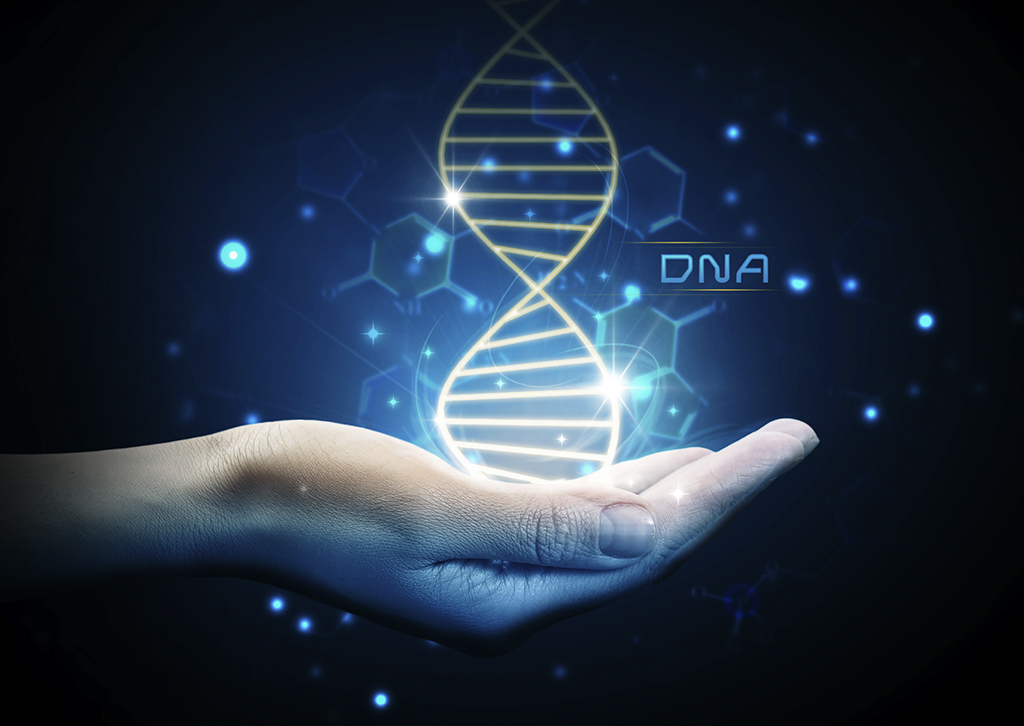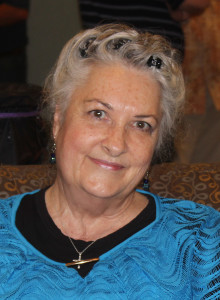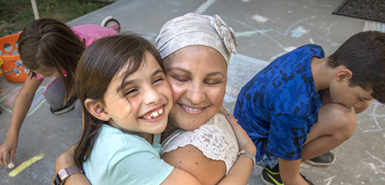
Kittye Harman’s monstrous medical chart meanders back almost 50 years.
But it may chronicle even more cancers and issues if it weren’t for genetic testing.
“I’m alive today because of genetic testing,” the Muskegon resident said.
In 1968, shortly after giving birth to her first son, she began sweating. Profusely. Perspiration poured from her body.
“The only relief I got was to sleep in a bathtub full of cold water,” Harman said.
It took nearly seven years for doctors to determine a cause. Many thought the condition was just in her head.
“I was ready to check into an insane asylum,” said Harman, now 67. “I thought I must be crazy. But deep down, I knew I wasn’t. I was praying for answers.”
In 1974, after listening to her symptoms, a dermatologist suggested she may have a tumor somewhere in her body. Further testing proved him right. Her adrenaline count was seven times beyond the norm.
During a risky surgery, doctors removed a baseball-sized tumor that was attached to her aorta and resting on her backbone.
“There were no CT scans or MRIs back then,” she said. “The only thing they could do was exploratory surgery. That’s how they found it.”

The benign tumor was only a prelude of what was to come—blood clots in her left leg and both lungs. Endometriosis. Toxic shock syndrome. Fibromyalgia. More benign tumors. Lingual tonsil masses. A tracheotomy. Thyroid, breast and kidney cancers.
Last August, Harman went through genetic testing at the Spectrum Health Lemmen-Holton Cancer Pavilion. The procedure consists of a blood test and filling out multiple pages detailing family medical history.
Mary Mobley, Spectrum Health cancer genetic counselor, said 5 percent of people in families with cancer have a hereditary genetic mutation which gives them a higher risk of developing cancer.
“We try to find those families because the risks are significantly higher than the average population,” Mobley said.
Mobley said people with a personal and family history of cancer as well as people with rare cancers are candidates for genetic testing. A doctor referral is recommended, but patients may self-refer.
A woman in her 30s with breast cancer would raise a red flag, according to Mobley.
“Basically what we do is we look at the whole family and we try to find the cause of the cancer in the family,” Mobley said.
It takes about five weeks to get test results back. High-risk patients undergo frequent cancer screening. Judith Hiemenga, MD, is Spectrum Health’s cancer genetic specialist.
“We set up a plan for that patient to know how often to do what,” Mobley said. “For some families, we really make a difference and that definitely makes it worthwhile.”
Mobley said Harman is a prime genetic testing success story.
“She’s a lovely woman who has really had a rough time with the different cancers she’s had,” Mobley said.
Harman said it was a relief to finally have some answers.
“When I went to have genetic testing with Dr. Hiemenga and Mary Mobley, it was as if I had been rescued from a sinking ship,” Harman said. “Those two women took an interest in me and did not act like I was crazy. Bless their hearts.”
The testing revealed an SDHB gene mutation that put her at a higher risk for cancer.
“I have a very rare mutated gene that is highly hereditary and is linked to various cancers,” Harman said.
The discovery of the mutated gene may have saved her life.
Last December, just four months after her genetic testing, Harman had symptoms of what she thought was a urinary tract infection.
“I started seeing blood droplets in the toilet,” Harman said, which she had been experiencing off and on for several years. “Whenever I had a flare-up, they would treat me with antibiotics and I would be on my way.”
Because of her genetic test results, Harman’s urologist ordered a CT scan of her abdomen. It showed a large, cancerous tumor.
In March, she had her right kidney removed.
“If I wouldn’t have had that genetic testing, I would have known nothing about the SDHB gene and how it’s linked to all of this,” Harman said. “One in 1 million people have this. Very likely I inherited it from my father. He had a lot of sweating. He died of unrelated causes in 1968.”
After Harman’s results, doctors suggested her other family members undergo genetic testing. Her sister, Becky, also tested positive for the gene mutation.
“I think this genetic testing is going to be the way of future medicine because it is right on,” Harman said. “It just tied everything together and answered so many questions. I kept wondering what I was doing wrong, why I kept having all these things wrong with me. It was my genes.”
Harman’s condition is so rare that she was asked to be part of a nationwide study.
“I’m so thankful that the Lord allowed me to go through all of this,” she said. “We need to help one another. I feel this is kind of my way to be able to help my fellow man, my fellow sister.”
Harman said she encourages doctors to not give up on patients with confusing symptoms.
“If they’ve got a patient whose symptoms sound preposterous, it might not be all in their head,” she said. “It may be in their genes.”
 /a>
/a>
 /a>
/a>
 /a>
/a>
This was a very informative & excellent article!!! I have a sister who had breast cancer & 2 aunts that also had CA. One had breast CA & one had CA in her lymph nodes. But neither of my parents nor any of my grandparents had it. Neither one of my brothers either! I would love to have this blood test.
Thanks, Barb, for being a reader and sharing your family’s story. I suggest you talk with your health care provider about this test and how it could help you. 🙂